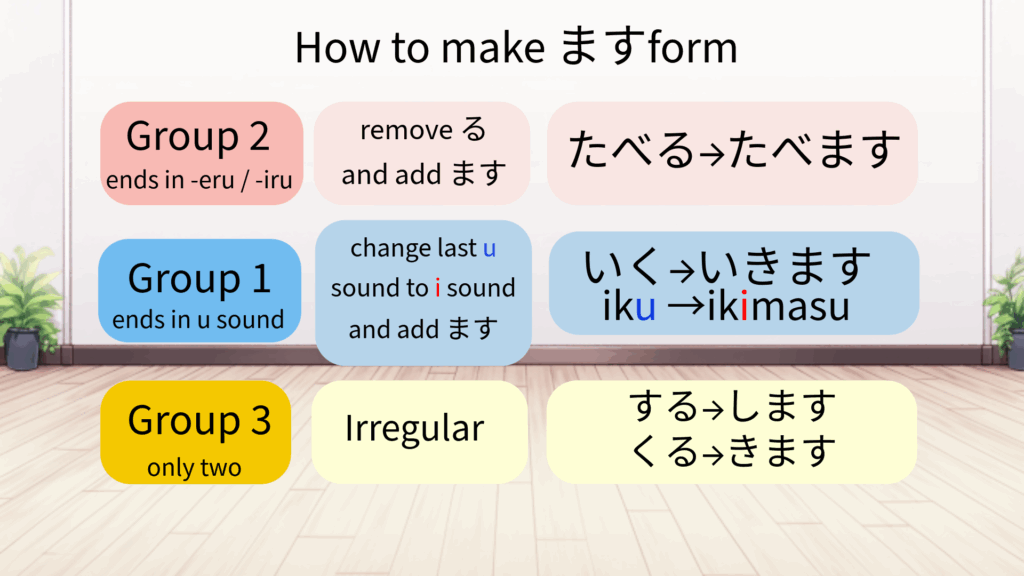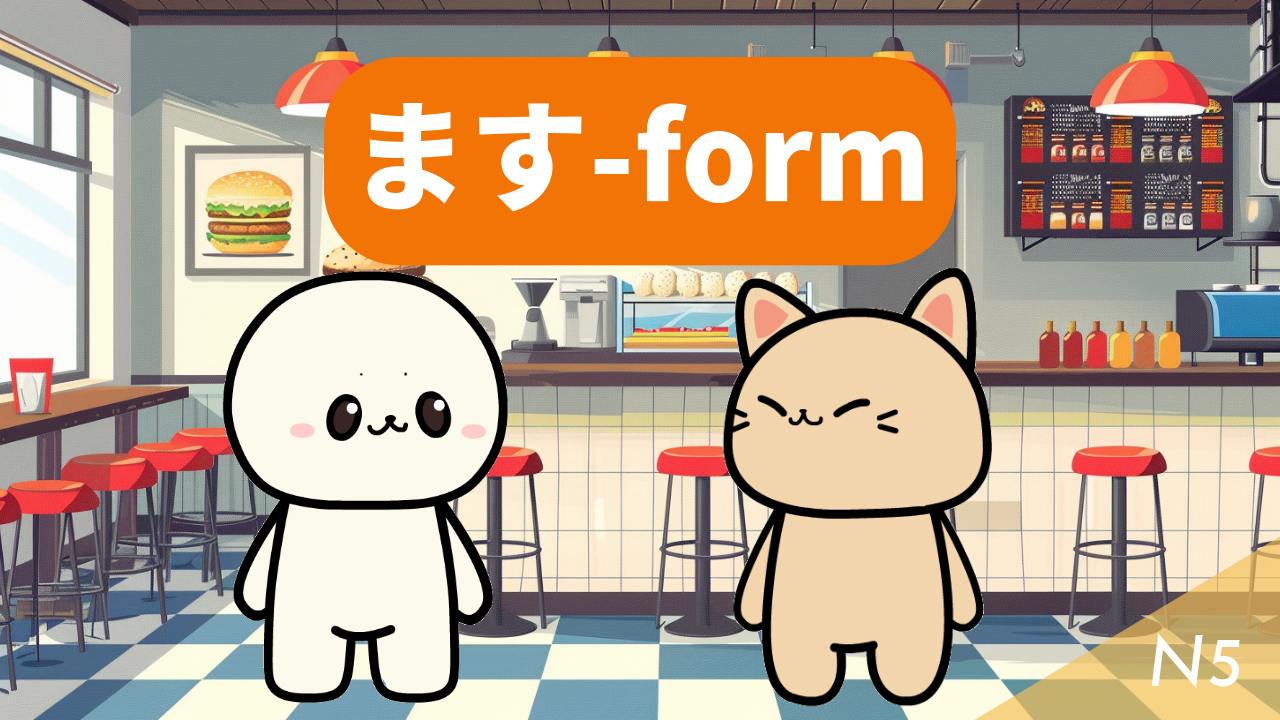The ます form is the standard polite form of Japanese verbs and is essential for everyday conversations. You probably already know ありがとうございます which means “Thank you” and this ありがとうございます has ます in it.
Since politeness holds great importance in Japanese social interactions, we start learning Japanese verbs in polite expressions. Let’s dive into the world of Japanese verbs!
Grammar: ます form (masu)
Meanings
The ます ending on Japanese verbs has two key meanings:
- Habitual or Daily Actions: This is for things you do regularly or as a habit. Think of your daily routine!
- Example: わたしはまいあさ6時におきます (Watashi wa maiasa rokuji ni okimasu).
- Meaning: “I wake up at six every morning.” (The word まいあさ (maiasa), meaning “every morning,” tells us this is a habit.)
- Future Plans or Actions: This is for things you plan to do or will do in the future.
- Example: わたしはあしたいきます (Watashi wa ashita ikimasu).
- Meaning: “I will go tomorrow.” (The word あした (ashita), meaning “tomorrow,” clearly indicates a future action.)
With this ます ending, Japanese verbs can express either the present (as a habit) or the future. The specific meaning is usually determined by other words in the sentence, such as time expressions like まいあさ (maiasa – every morning) or あした (ashita – tomorrow). Pay attention to these context clues!
Sentence Construction

- Group 2: Remove “ru” and add “ます” (masu).
- Group 1 Verbs:
- change the the last u sound to i sound and add “ます” (masu).
- (e.g., 行く (iku) remove “u” and add “i”→ iki and add ます. 行きます is the masu form of 行く)
- Group 3 Verbs:
They’re only two irregulars.
する→します, くる→きます
Family of ます: ません, ました, and ませんでした
In Japanese grammar, verbs are made of a base part and an ending. By slightly changing the ます ending, you can easily express different meanings like “didn’t do” or “won’t do.
ません for Negative
First, we have -masen (~ません). This is the negative version of ます, used for both present and future actions.
When you change the ending part ます to ません, it means negative.
行きます(go) →行きません( not to go)
私は行きません (watashi wa iki masen.) means “I (will/ do) not go.”
ました for past tense
When you change ます to ました, the verb becomes past tense.
行きます(go) →行きました(went)
私は行きました (watashi wa iki mashita.) means “I went.”
ませんでした for past negative
When you change ます to ませんでした, the verb becomes past negative.
行きます(go) →行きませんでした(did not go)
私は行きませんでした (watashi wa iki masen deshita.) means “I didn’t go.”
Example Sentences
わたしは10じにねます。(Watashi wa jū-ji ni nemasu.) – I go to sleep at 10 o’clock.
すずきさんはきのうかいしゃにいきました。 (Suzuki-san wa kinō kaisha ni ikimashita.) – Suzuki-San went to the office yesterday.
わたしはべんきょうしませんでした。 (Watashi wa benkyō shimasen deshita.) – I didn’t study.




Leave a Reply